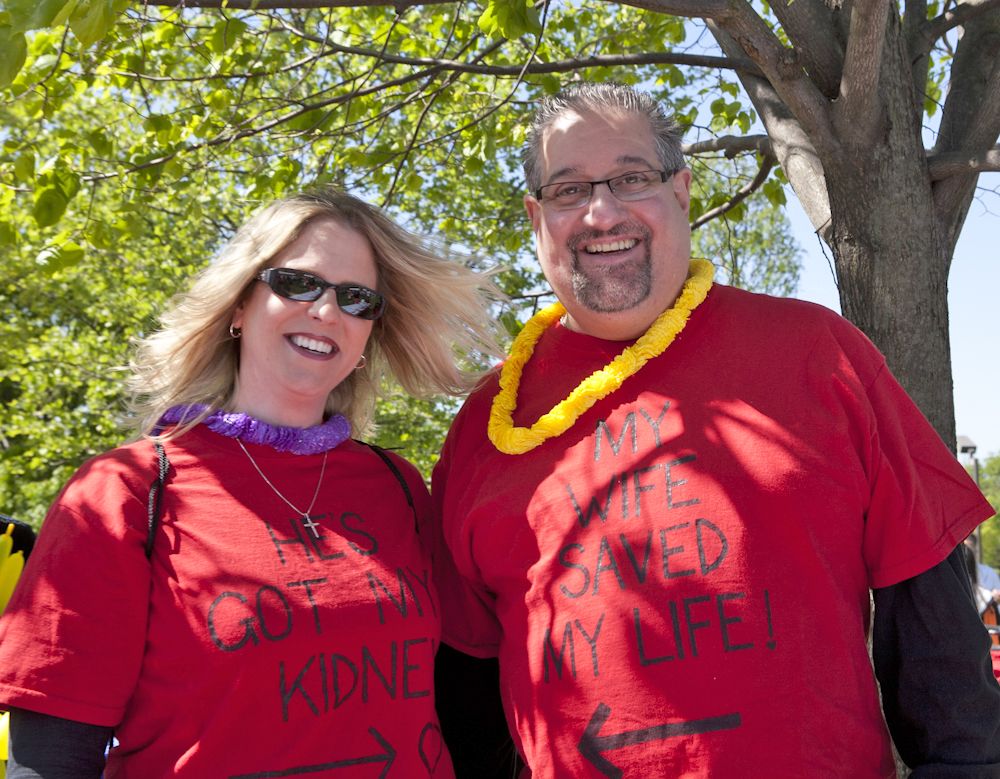
Last week I wrote about what's involved in matching donor kidneys with recipients. While the checklist I reviewed is used each time there's a potential match, the problem remains that there aren't enough organs to go around. Unfortunately, not everyone will even make it to the "matching" point in the transplant process.
In the U.S., 18 people die every day while waiting for a life-saving transplant. There are more than 114,000 people waiting for organs, and more than 80 percent of them are waiting for kidneys.
I feel the need to really drive this message home in light of this week's Facebook announcement. In case you missed it, Facebook has now created a way for users to designate their organ donor status online through the Health and Wellness profile feature of the new Timeline. The National Kidney Foundation is encouraging people to use this profile feature to share their commitment to being an organ donor with friends and family. Once you have identified yourself as a Facebook organ donor, you can visit the Donate Life America website to choose your state of residence and learn more about the donation options in your area.
There is a great willingness and openness to share information about ourselves with those around us. From the mundane to the meaningful, Facebook has created a vehicle for more than 900 million to share personal information, offering an online window into our everyday lives -- relationships, hobbies, interests, and even intimate thoughts and beliefs. Now there's also an opportunity for people to share their wishes about organ donation in life and death.
Harnessing the power of social media for any social good is to be commended, and the issue of organ donation is near and dear to my heart (and kidneys). Hopefully, starting this conversation between family and friends on Facebook will make those who never thought about it begin to consider giving the gift of life. Collectively, we can make a difference and save thousands of lives.
If you're still unsure, learn the facts. Organ donation doesn't need to be a scary topic -- find out more:
- Organ donors can range in age from newborn to over 65 years of age.
- Six solid organs can be donated: kidneys, lungs, liver, pancreas, heart and intestines. Even the corneas, bones, tendons, skin and heart valves of a deceased donor can be transplanted and if desired, a donor can specify which organs and tissues are to be donated.
- Living donors can donate a kidney, part of the liver and bone marrow.
- A deceased donor can save the lives of up to eight people!
- Organ and tissue donation are not even considered until all possible efforts to save a person's life have been exhausted.
- Most religions throughout the world support organ and tissue donation and consider it the ultimate humanitarian act. If you are concerned, check with your religious leader.
- Open casket funerals are still possible if you are an organ donor.
Once you've made the decision to donate, designating it on your driver's license, joining your state registry, and signing a donor card are all ways to document your wishes about donation. Letting your family or other loved ones know about your decision is equally important. That's because family members are often asked to give consent for a loved one's donation, so it's important that they know your wishes.
This week, I'll leave you with a question: What's your status?
Next time you post an update on Facebook, I challenge you to think about your status in the context of being an organ donor.
Have additional questions about donation and transplantation? Read more frequently asked questions surrounding organ and tissue donation and check out the National Kidney Foundation's END THE WAIT! initiative designed to increase organ donation and reduce the amount of time people spend on the waiting list.
For more by Leslie Spry, M.D., FACP, click here.
For more health news, click here.